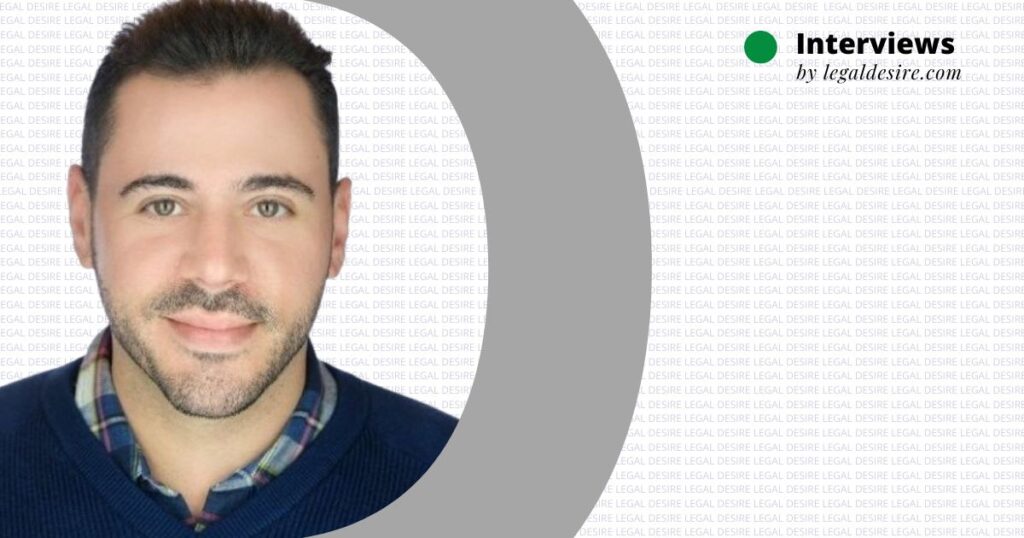Now Reading: Interview: Prof. Sri Krishna Deva Rao, Vice-Chancellor at National Law University, Odisha
-
01
Interview: Prof. Sri Krishna Deva Rao, Vice-Chancellor at National Law University, Odisha
Interview: Prof. Sri Krishna Deva Rao, Vice-Chancellor at National Law University, Odisha
Prof. Rao holds a Master’s degree in Law from Kakatiya University, Warangal, Master of Philosophy in Law from National Law School, Bangalore and Ph.D. from Delhi University.
Prof. Rao has actively involved with legal education and research in India at four National Law Schools: National Law School of India University, Bangalore (1990-1995 & 1997-98), NALSAR, Hyderabad (1998-2004), Gujarat National Law University, Gandhi Nagar (2004-2007) and National Law University, Delhi (2010-14) including short stint with Jawaharlal Nehru University (1995-96) and University of Delhi (1996-97).
He was a member of the UGC expert committee in Law to transform legal education in India (2010-2012). He was a visiting fellow at School of Oriental & African Studies, SOAS, London (2013) and University of Washington at Seattle (2012), He has engaged with several research projects with UKERI, UNDP, Law Commission of India and Ministry of Law and Justice etc.
He was a consultant to the Indian Medical Association (IMA), Swedish Development Cooperation (SDC), Sir Dorabji Tata Trust (SDTT), Child Rights and You (CRY) and Swedish National Science Foundation (SNSF).
His research interests include Criminal law, Human Rights, legal education and Access to Justice.
Interviewer: Sir, how would you like to introduce yourself to our readers?
Prof. Rao: As a law teacher. Professor, Assistant professor, Associate professor- these are all hierarchy. What is important is that I’m a teacher. A teacher is someone who reads, thinks, writes, motivates students and also has a social obligation to create a just, fair and democratic society. This is what a teacher is meant for, particularly a law teacher.
Interviewer: What inspired you to join law? Were you able to satisfy your inspiration?
Prof. Rao: This is a difficult question, I must say. Like all others I wanted to pursue Science for my higher studies. Micro-biology and Bio-chemistry was my area of interest, but I could not get through. So, law was my next option and while studying law I realized how it is integral to the country, particularly inspired by the constitutional values and principles. Also, that was the time when we were a part of an active civil liberty movement in India. So, that created a lot of interest and we realized that this country needs alternative lawyers.
Interviewer: How was your law school journey?
Prof. Rao: I was an ordinary student when I was studying LLB. But I had an amazing experience practicing at Trial Court for three years. After completing my LLB, I went to Hyderabad. There my senior advocate at Andhra Pradesh High Court, used to tell us, “Aap log padhna kyun baand kiya. You all should study.” And secondly he used to encourage us to work at Trial Court. So, that inspired me to go back to Vijayawada, and work at Trial Court. I still remember my first case was that of a bail application.
That was the time when I started thinking about my life goals. In 1990, when I went to Warangal to meet one of my teachers, he encouraged me to register at Kakatiya University as a LLM student. We were the first batch. Those two years were really enriching and had completely changed my interest in professional legal education. That motivated me to make a firm commitment to come to teaching. It was a remarkable journey.
I remember I wrote my first research paper in my 1st year of LLM and it had got selected for presentation at National Law School, Bangalore. And for a LLM student in a conventional university, Vice-chancellor giving train fare to go and present a paper was a big deal. Then it so happened, my session was chaired by Prof. Madhav Menon and in the same session two faculties of NLS also presented a paper. Prof. Madhav Menon, later, had called and offered me to join the M.Phil program of NLS and it was an innovation program. I was still in my final year and he had given me an extension for the admission. I had joined NLS even before my results were out. I remember, he had given me this interesting phrase ‘Visiting Student Scholar’ until my results were out. Those years in NLS gave me a lot of confidence to continue with my research. I had the best experience during those five years. It gave me the initial grounding. Prof. Menon is a hardcore professor and amazing personality and I was fortunate to have him as my guide in those initial years.
Interviewer: What are the opportunities that are open today to the law students?
Prof. Rao: I always support one argument which the students may not like, that universities should not look at placements. We provide education and skills to the students. In fact, the purpose of National Law Schools is to develop the students into fine lawyers. The challenge is to improve the quality of legal profession. I know and I understand it takes a lot to grow in legal profession, but that is where the challenge lies. Instead of joining a law firm and working for someone else, one should opt for masters and go for higher educations. This field provides a lot of opportunities. We need good researchers and policy makers. There should be creativity, innovation and development in this field. The actual challenge lies in the court. I always encourage my students to go for litigation, teaching, research and public service. With a law degree, the world is yours to explore. Initial independence will be there when you work on your own.
Also, I think the mushrooming of these law universities should stop now. Just like, they have diluted IITs and IIMs, multiplication of these law schools should also come to a halt.
Interviewer: What is the best thing about your job?
Prof. Rao: The best thing about my job is that I get to research on a lot of subjects. Another best thing about this job is getting the opportunity to motivate young minds. It is not just about feeling good but it is about doing good.
Interviewer: Sir, according to you what is the importance of Mooting, Publication and Internships in a law student’s life?
Prof. Rao: Mooting is important but mooting should not be the only co-curricular activity. Debating is essential and it is one such thing which is neglected. In fact, law schools have not focused much on debating. Along with these, research is also very important, I must say.
Interviewer: Did you face problems in taking up law teaching as a profession and how did you cope up with that?
Prof. Rao: I did not face any problem as such. Teaching requires commitment and dedication and it provides the person with an opportunity to specialize in that area. Be it any subject, teaching helps a person build his reputation and dignity and each teacher should utilize that opportunity efficiently.
Interviewer: What is the one thing that keeps you going?
Prof. Rao: When I get to interact with 10+2 passed out young minds, everyday, I think, that is the best motivation. Challenging young minds and motivating them is the best part of it. When I see a student progress in his/her life, the satisfaction that I get keeps me going. That is the best reward one can get.
Interviewer: Any success habit that you would like to share as a student for our readers that would encourage them?
Prof. Rao: All I can say regarding success is that there is no substitute for hard work. Be sincere and honest. Once you’re committed and focused, you can achieve anything under the sun. Also, be positive. Don’t waste your energy thinking about negative consequences.
Interviewer: How do you measure the success of any person in their career?
Prof. Rao: I don’t know how to measure success. For some, success may be getting placed in a good law firm. For others, it may be delivering justice. At the end of the day, if you’re satisfied with your work, with whatever you have achieved, no matter how big or small it is, then you’re successful. Success is an individual indicator.
In fact, we should start with failures. When we walk about justice, we always look at the injustice. Similarly, to talk about success, I think, we should start with failures. Success should not be easily available. It is a long journey of struggle and hard work. The more you fail, the more determined you’ll be.
Interviewer: What, according to you, should be the prime concern for law students?
Prof. Rao: Read and write as much as you can. Along with that, be a good human being.
Interviewer: What would be your message to the law students to encourage them to grow in their personal as well as professional lives?
Prof. Rao: Always have a five-years goal in your mind and plan things accordingly. Half an hour should be devoted everyday for this. Think and analyse why are you here in the law school, what is your purpose. This will make you focused on your goals, and once you’re focused, these grades don’t matter.
One more thing, that I always advice the students is that they should go abroad for their masters, to have a better understanding of the subject. International exposure is very important.
Interviewer: What’s the best way for a student to get to know you?
Prof. Rao: I’m popularly known as KDR among my students of National Law School. Also, I’ve a part of legal aid movements for more than three decades. That is where my passion and commitment lies. Making access to justice a reality is what I work for.
Interviewer: Sir, what is your favourite quotation?
Prof. Rao: Authoring the landmark 1986 judgment, Justice O. Chinnappa Reddy had noted: “Our tradition teachers tolerance; our philosophy preaches tolerance; our Constitution practices tolerance; let us not dilute it.”
This will always be my favourite quotation.
Interviewer: Sir, any message for our readers as a token of love.
Prof. Rao: Be honest and sincere. Always stay focused and contribute to the betterment of the society. All the best!
Interviewer: Swagata Banerjee,
Campus Ambassador,
Legal Desire Media and Publications.








